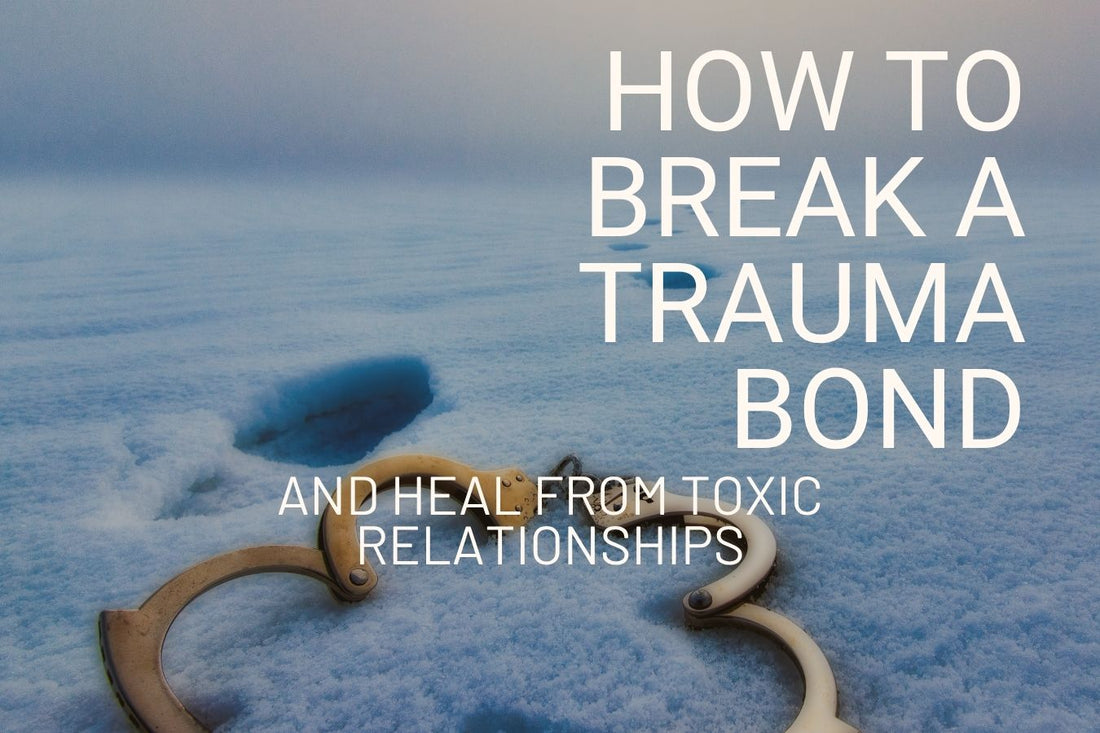
How to Break a Trauma Bond and Heal from Toxic Relationships
Share
If you’ve ever found yourself stuck in a relationship that hurts but feel unable to let go, you’re not alone. Trauma bonds create powerful emotional connections that sneak into your life in confusing ways — trapping you in a cycle of pain and hope, love and hurt. Whether with a partner, family member, friend, or coworker, trauma bonds keep you caught in toxic patterns, making it hard to break free.
What Is a Trauma Bond and How Does It Affect You?
Imagine an emotional rollercoaster where moments of kindness or affection suddenly switch to pain, criticism, or neglect. Trauma bonds develop when your heart becomes tied to this unpredictable push and pull. Your brain and body get addicted to those brief moments of reward — attention, approval, or affection — even when they are followed by hurt. This creates an invisible chain that’s incredibly difficult to break.
Why Is It So Hard to Break a Trauma Bond?
You might wonder, “If it’s hurting me, why can’t I just leave?” Trauma bonds aren’t just mental, they live deep in your body and heart:
-
You’re chemically hooked. Oxytocin, the bonding hormone, is released during moments of affection or attention. Your body craves this, even when the person hurts you.
-
It feels familiar. Painful as it may be, it’s what you know. Leaving feels like jumping into the unknown — scary and lonely.
-
Guilt and shame weigh you down. You might blame yourself, thinking you deserve the pain or are the problem.
-
Fear of loneliness or rejection. Sometimes staying feels safer than risking isolation or starting over.
How Trauma Bonds Drain Your Energy and Self-Worth
Trauma bonds don’t just affect your feelings, they impact your entire energetic system:
-
You may feel exhausted and drained of energy.
-
Your confidence and self-worth can take a hit, making it hard to believe you deserve better.
-
Distrust in yourself and others may grow, blocking healthy new connections.
Trauma Bonds Can Exist Beyond Romance
These bonds aren’t limited to romantic relationships. They can develop with family members whose love feels conditional, friends who shift between warmth and coldness, or even bosses who alternate praise with harsh criticism. Trauma bonds form anywhere love and harm collide in confusing cycles.
Brave Steps to Break a Trauma Bond and Begin Healing
Breaking free is rarely instant or easy. It’s a messy, courageous journey that takes time, compassion, and support. Here are steps to guide your trauma bond recovery:
-
Seek support. Therapy, support groups, or trusted friends can help you navigate this path.
-
Set firm boundaries. Sometimes, no contact is necessary to stop the harmful cycle.
-
Practice self-compassion. Healing takes time — be gentle with yourself.
-
Allow yourself to feel. Grieve, be angry, and explore your emotions through journaling, art, or therapy.
-
Rebuild trust slowly. Start with trusting yourself, then those who respect your boundaries and growth.
-
Stay present. Mindfulness helps you catch old patterns before they take hold again.
Remember: Healing From Trauma Bonds Is Possible
You may still feel pulled back at times, and that’s okay. Healing isn’t linear. But each brave step forward breaks the cycle a little more — bringing you closer to freedom, self-love, and healthier relationships. You deserve connections that uplift, not tear down.
Light Your Path With Healing Affirmation Candles
Support your trauma bond recovery with our Self-Affirmation Candles. Crafted to help you set powerful intentions for healing and self-love. Lighting a candle is more than ambiance; it’s a ritual of transformation. Let its gentle glow inspire hope, strength, and courage within. Discover your affirmation and start speaking life into your journey today.
